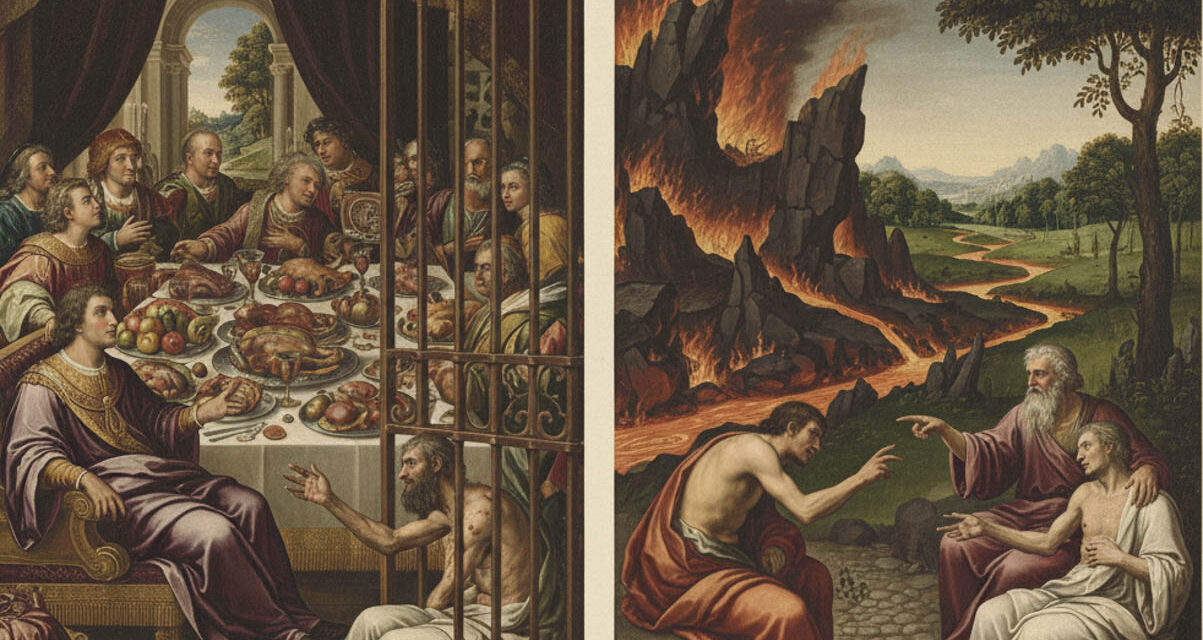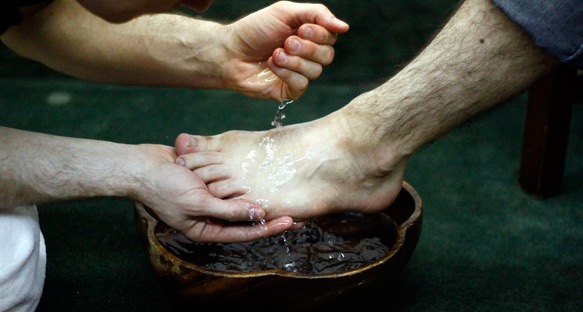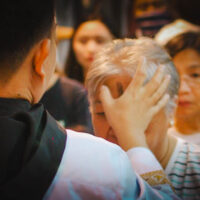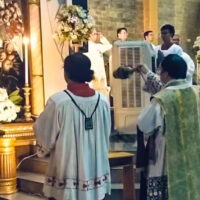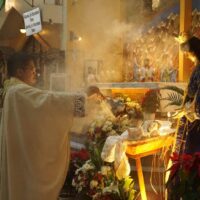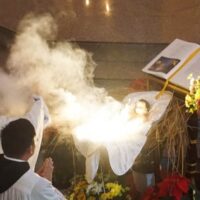The Gospel for the 26th Sunday in Ordinary Time (Luke 16:19–31) presents the parable of the Rich Man and Lazarus, a story that offers a profound warning against indifference and the sin of omission. The rich man, traditionally called Dives (Latin for “rich”), is described as clothed in purple and fine linen, feasting in luxury every day. At his gate lay Lazarus, the only character in any of Jesus’ parables to be given a name, which means “God is my help.” Lazarus was poor, covered with sores, and so helpless that even the dogs tormented him as he longed for crumbs from the rich man’s table. The contrast is stark: the rich man enjoyed abundance and comfort, while Lazarus suffered misery and neglect. Yet, when death comes, the roles are reversed—Lazarus is carried to Abraham’s bosom in eternal comfort, while the rich man finds himself in torment.
The sin of the rich man was not one of direct cruelty; he did not drive Lazarus away, nor did he forbid him from receiving discarded food. His sin was that he never noticed Lazarus. This is the essence of the parable: the condemnation of the rich man stemmed from his failure to act, from his refusal to respond to the suffering before him. It is a striking example of the sin of omission, which can be just as grave as sins of commission. Wealth in itself is not condemned, but its selfish use and disregard for others can lead to eternal loss. The parable reminds us that indifference to suffering is a moral failure with eternal consequences.
Applied to the present day, the figure of Lazarus represents a l those who are poor, marginalized, and neglected in society—the homeless, the sick, migrants, and those on the peripheries of life. The parable challenges us to examine whether we recognize these “modern Lazarus” at our gates or whether we, like the rich man, live in comfort while ignoring their plight. Discipleship, therefore, is not simply about avoiding evil but about actively doing good. The rich man’s punishment was not because of what he did wrong, but because he did nothing. Thus, this Sunday’s Gospel ca ls us to awareness, compassion, and concrete action, reminding us that love must be expressed in deeds, especially toward those most in need.
—Nayrb
BEYOND THE GATE: A HEART AWAKENED
Today, I spent time reflecting on the quiet beauty and power of this gospel passage. Lazarus, a man who suffered silently and was ignored in life, was honored in death – not by people, but by heaven itself. The image of angels carrying him to Abraham’s bosom is deeply moving. It tells me that God’s justice is not always loud, but it is always faithful. It reminds me to pause and reflect on how I treat others – especially those who are suffering or in need. Like the rich man, I sometimes get caught up in the busyness and comfort of daily life, unintentionally overlooking people who might be silently struggling around me.
The rich man’s life was fi led with abundance, yet he was blind – not physically, but spiritually. Lazarus lay at his gate, a living reminder of suffering, but the rich man never saw him as a person worthy of dignity. Lazarus represents those who are marginalized, ignored, or forgotten. His presence at the gate is a powerful image: he was close enough to be seen, yet far enough to be neglected. It makes me ask myself: Who are the “Lazaruses” in my life?
I think about the people I encounter who may feel invisible – those who are struggling emotionally, financially, or spiritually. It reminds me that no one is truly unseen by God. Even when the world turns away, heaven leans in. To live with that kind of awareness. To see people the way God sees them. To remember that true worth is measured not by status, but by the heart. And to trust that even in suffering, God is near – and His angels are never far.
The reversal of roles in the afterlife is sobering. Lazarus, once rejected, is now embraced. The rich man, once celebrated, is now isolated. It reminds me that God’s justice sees beyond appearances. What we value on earth –status, comfort, recognition may mean nothing in eternity if our hearts are closed. This is a wake-up call. It’s not meant to condemn, but to awaken. To stir compassion. To ignite urgency. To remind me that faith is not passive – it must be lived out in love, in action, in seeing those who are often unseen.
Lord, break my heart for what breaks Yours. Help me to see beyond my own comfort and recognize the Lazaruses around me. Teach me to live with eternal perspective, with compassion that moves me to act, and with faith that reflects Your mercy. May I never be so consumed by my own world that I miss the chance to love someone at my gate. Amen.
—m’jdm
REFLECTION QUESTIONS
Personal: If my life were to end today, how would I want to be remembered — by wealth, or by kindness and generosity?
Practical: What habits can I form to be more attentive to the poor and marginalized?
PRAYER TO START THE WEEK
Lord Jesus, open my eyes to see the “Lazaruses” around me whom I often ignore. Teach me to share what I have with love and compassion. Help me to take your Word seriously and live each day in the light of eternity. Amen
 Diocese of Parañaque
Diocese of Parañaque

